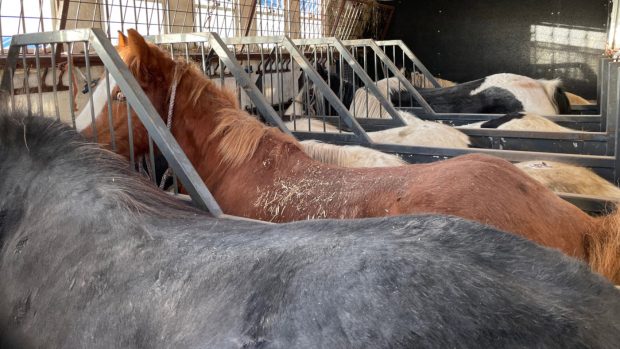New transport regulations from the European Union that come into force in the UK on 5 January 2007 have been described as “a step in the right direction” by the International League for the Protection of Horses (ILPH).
The Animal Welfare in Transport regulations are being introduced primarily to protect live animals being transported around Europe for slaughter.
Under the new rules, transporters must partition lorries to provide individual stalls, unbroken horses will not be allowed to make long journeys and people who drive lorries and handle horses must undergo thorough training. Breaking the regulations could incur a maximum penalty of £5,000 or six months’ imprisonment.
But the ILPH’s Phil Spiby told H&H he was “desperately disappointed” that the key issue of fixing the maximum journey time had not been addressed.He added: “These regulations have value only if they are enforced, so adequate provision to do this needs to be put into place.”
The ILPH is concerned that, otherwise, enforcement will be left to the welfare groups, working in tandem with trading standards.
The regulations will also have a knock-on effect throughout the equestrian community, as they apply to any animals being transported for “economic activity”. This means that people who travel two or more horses for any profit or gain will need to apply for an authorisation certificate from DEFRA, the government body responsible for implementing the legislation in the UK. This can be done online at the department’s website — www.defra.gov.uk
Unlike the Vehicle & Operator Services Agency (VOSA), which at present has a strict interpretation of “economic activity” (clcik here to read more), DEFRA does not intend to include individuals who drive to shows at weekends as a hobby or transport a friend’s horses for £10 petrol money.
“Under the welfare rules, we do not consider people returning from shows with small to moderate prize-money to be undertaking an economic activity, rather it is transport for pleasure,” a DEFRA spokesman told H&H.
British Horse Industry Confederation (BHIC) consultant Cathy McGlynn said: “The scope of this goes much wider than the previous regulations. People such as livery yard owners who take horses to shows for clients for a charge will have to have an authorisation certificate.”
And there are acknowledged “grey areas” over whom the legislation applies to, such as amateur competition yards, breeders and amateur producers. These were discussed at a meeting in Brussels two weeks ago, attended by members of the International Equestrian Federation (FEI), but there is no resolution or decision on how best to move forward.
“DEFRA admits that the only way to deal with these will be on a case-by-case basis,” added Ms McGlynn.
The BEF is currently working on clarifying transport guidelines for the horse industry, and is looking at the implications for sport horses.
“We will provide an overview of key points on our website — www.bef.co.uk — outlining the issues that may affect the equestrian industry,” said spokesman Anna Greenway.




